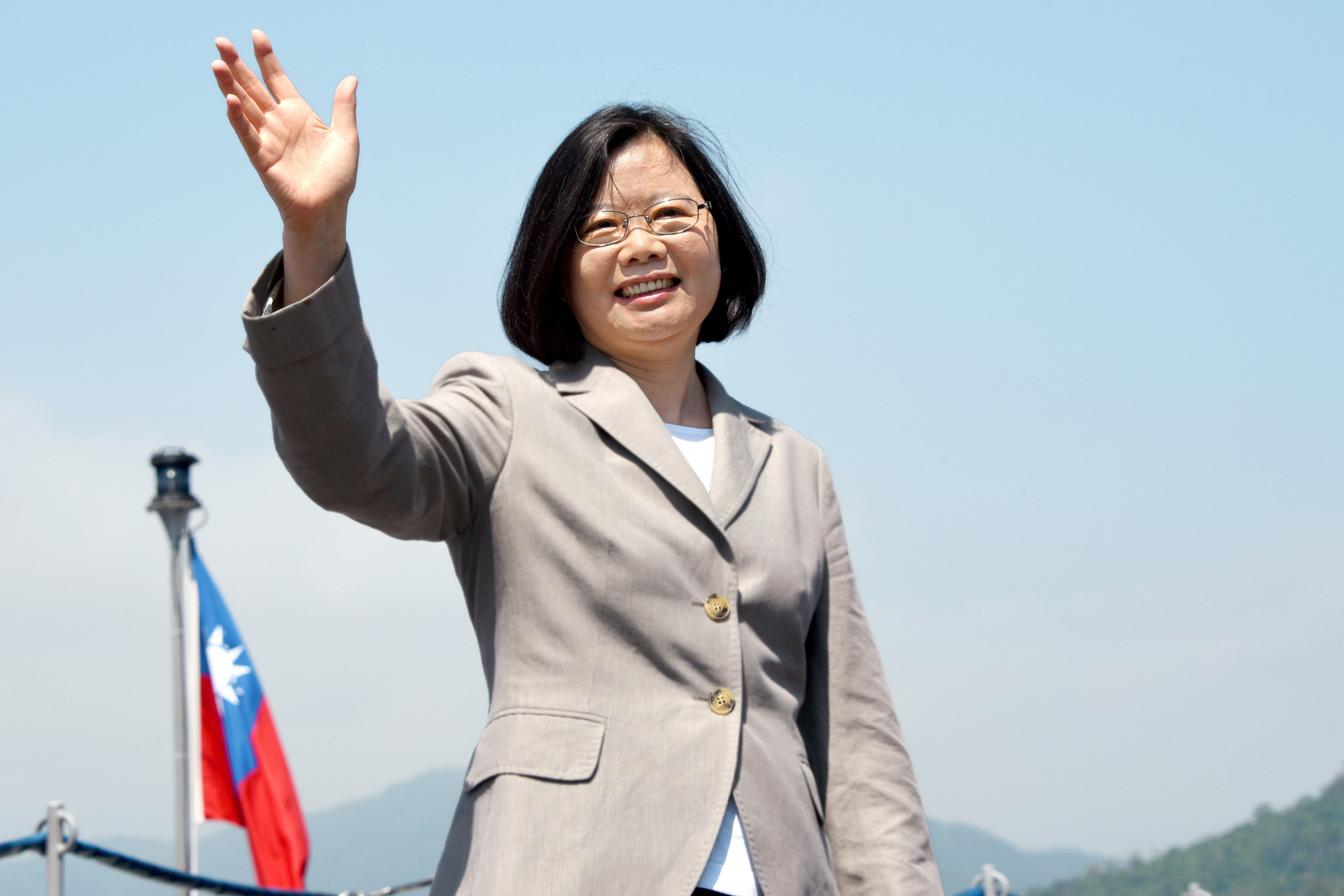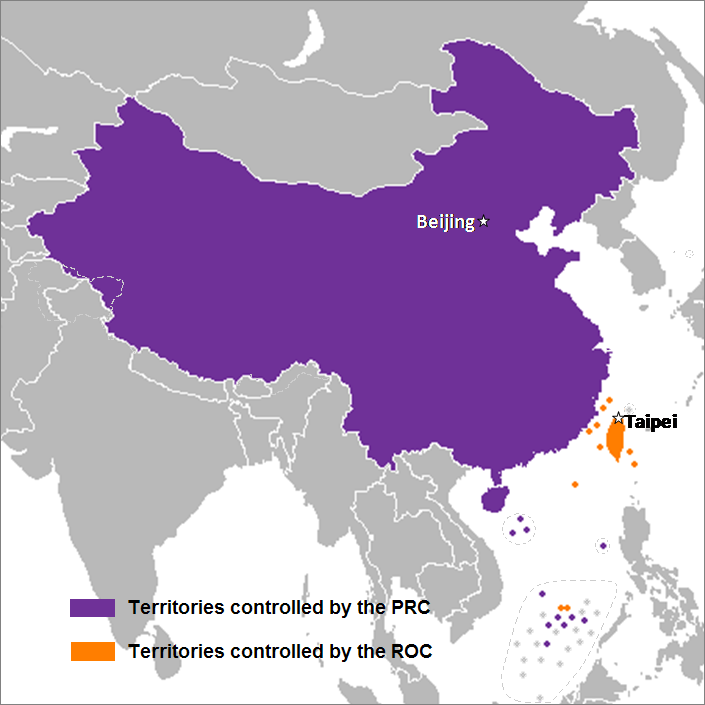Thanks to US President Donald J Trump, everyone is learning about the "One China Policy".
 Source: Google.
Source: Google.
Here's the context: President Trump spoke with China President Xi Jinping over the phone on February 9. Trump agreed, at the request of Xi, that the United States would honour "our One China Policy".
The "lengthy" and "extremely cordial" telephone conversation described by the White House was significant as the two leaders had not spoken to each other since Nov 14, 2016, a week after Trump was elected.
Trump had wrong-footed Beijing by calling the President of Taiwan in December 2016. His subsequent assertion that the US might no longer abide by the "One China Policy", had set off alarm bells in China as a sign of his intention to reinterpret a long-standing policy that was critical to US-China bilateral relations.
In a statement by China's Ministry of Foreign Affairs, Trump had "stressed that he fully understood the great importance for the U.S. government to respect the One China policy," and that "the U.S. government adheres to the One China policy."
It also said Xi had pointed out that the "One China Principle" (一个中国原则) is the political foundation of China-US relationship.
So is this just a return to status-quo, or does it signify a concession on Trump's part? Before making any further analysis, it is perhaps useful to understand what this whole "One China" thing is about.
"One China Policy"
In 1949, the Nationalists, also known as the Kuomintang, governing the "Republic of China" (R.O.C), retreated from mainland to the island of Taiwan and made it its seat of government. The victorious Communists began ruling the mainland as the People's Republic of China (P.R.C.). Both parties said they represented all of China.
The "One China Policy" is US' diplomatic acknowledgement of China's position that there is only one Chinese government. Under the policy, the US broke official ties with Taipei and built formal ties with Beijing in 1979 under President Jimmy Carter.
In that same year it also passed the Taiwan Relations Act, that states that the US must help Taiwan defend itself. The act is the basis on which the US continues to sell arms to Taiwan.
 Taiwan President Tsai Ing-wen. (Source: Getty Images)
Taiwan President Tsai Ing-wen. (Source: Getty Images)
However, the policy is distinct from China's "One China Principle". As articulated by then Assistant Secretary of State for East Asian and Pacific Affairs James Kelly in 2004:
In my testimony, I made the point "our One China," and I didn't really define it, and I'm not sure I very easily could define it. I can tell you what it is not. It is not the One-China policy or the One-China principle that Beijing suggests, and it may not be the definition that some would have in Taiwan. But it does convey a meaning of solidarity of a kind among the people on both sides of the straits that has been our policy for a very long time.
US maintains an unofficial presence in Taipei through the American Institute in Taiwan (AIT), which carries out diplomatic activities.
"One-China Principle"
The standard Chinese government "One-China principle" narrative has three parts: "There is only one China in the world. Taiwan is an inalienable part of Chinese territory. The government of People's Republic of China is the sole legitimate government representing the whole of China."(世界上只有一个中国。台湾是中国领土不可分割的一部分。中华人民共和国政府是唯一代表中国的合法政府。)

Source: Wikipedia
The Chinese uses "One China Policy" (一个中国政策) and "One China Principle" (一个中国原则) interchangeably.
This can be seen from the transcript of the China MFA spokesperson at its regular press conference after Trump's phonecall to Xi:
"You must be aware that the one-China principle is the political foundation for China-US relations. To adhere to the one-China policy and the principles reflected in the three joint communiqués between China and the US is the obligation of the US administration. It is also China's consistent position. We commend President Trump's statement in the phone call that the US administration will honor the one-China policy."
"The one-China principle is always the political foundation for China-US relations. In the phone call this morning, President Trump affirmed that the US administration will honor the one-China policy. We commend this."
Still sounds confusing?
Global political risk research and consulting firm Eurasia Group's explainer on the "diplomatic fudge" at the center of US-China relations probably sums it up best from the US perspective:
"The One China policy is a commitment that has many components to it. One part of it are the three joint communiques -- the one signed in 1972, the second one signed in 1979 during the normalization of relations, and the one signed in 1982 governing US arms sales to Taiwan. Plus the Taiwan Relations Act. So it's two parts -- the three communiques, the Taiwan Relations Act.
And fundamentally, the agreement at the heart of the One China policy is the US position that the sovereignty of Taiwan is undetermined. In the first communique, the Nixon Administration acknowledged the Chinese position that China views Taiwan as part of China. But the US is agnostic on this question. So the sovereignty of Taiwan is undetermined. That's the fundamental fudge, diplomatic fudge at the center of this whole issue. "
"The One China policy, which has facilitated the US to establish diplomatic relations with China and build up this big economic relationship, is different than the One China principle. China has a One China principle, America has a One China policy. And they are not the same. China's One China principle is that there is one China and that Taiwan is part of that One China, and accordingly there is not one China and one Taiwan, or two Chinas. The One China policy the United States has fudges that particular issue. The reason why this is so important is because this has created the diplomatic foundation for the US to establish diplomatic relations with China beginning in 1979. And so by Trump calling into question the One China policy, he is essentially questioning the diplomatic foundation of the US-China relationship."
Top photo from Getty Images.
If you like what you read, follow us on Facebook and Twitter to get the latest updates.
If you like what you read, follow us on Facebook, Instagram, Twitter and Telegram to get the latest updates.
